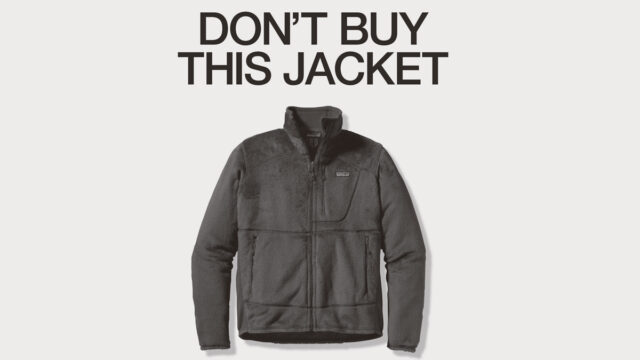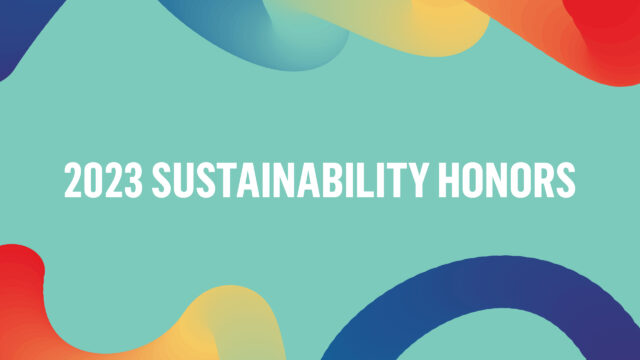Americans Love Cheap Convenience. That Makes Single-Use Plastic Bags Hard to Replace
Learn to partner with creators and build customer trust with authenticity. Join leaders from TikTok, the NBA and more at Social Media Week, May 16–18. Register now.
Shoppers in New Jersey this summer might notice something different at their local CVS and Target stores—a kiosk offering to take back reusable shopping bags for $1 each.
It’s part of a new pilot program by Closed Loop Partners’ Consortium to Reinvent the Retail Bag, a multi-year project to develop seamless alternatives to the single-use plastic bag. The group is running a returnable bag pilot from April 17-July 17 in the Garden State. Bring-your-own-bag pilots are also coming to Tucson, Ariz., and Denver.
Launched in 2020, CVS and Target were founding partners alongside Walmart, putting a collective $15 million toward the project.
DICK’S Sporting Goods, Dollar General, The Kroger Co., TJX and Ulta Beauty are sector lead partners of the consortium. The program takes careful steps aimed at finding a solution that’ll integrate smoothly across a complex cultural landscape. Environmental experts argue that faster progress is needed to stop the constant stream of plastic pollution.
The long, winding road to replacing plastic bags
While reliable numbers on total plastic bag waste are hard to come by, an oft-cited 2004 statistic from the Worldwatch Institute estimated that Americans toss roughly 100 billion plastic bags in the trash each year. In 2020, New York alone went through roughly 23 billion plastic bags, according to the state’s environmental conservation department.
Shifting to reusable bags isn’t rocket science.
Judith Enck, President, Beyond Plastics
That’s what prompted Closed Loop Partners to take on the issue—recruiting major retailers to shift shopper behavior at scale. The group started with a competition: soliciting ideas from inventors, innovators and supply chain and packaging experts to identify new ways of solving the problem that consumers face when trying to get what they buy home.
“The incumbent status quo isn’t perfect,” Kate Daly, managing director of the Center for the Circular Economy at Closed Loop Partners, told Adweek. “How do we capitalize on customers wanting something better to deliver solutions that get them what they want and have a lower environmental impact?”
The consortium received more than 450 submissions, with awards going to nine finalists in early 2021. Later that year, four of those solutions were tested in pilot programs at nine CVS, Target and Walmart stores in Northern California. Two of those winners, 99Bridges and Returnity, are powering the returnable bag pilot in New Jersey this summer.
Too late for pilots?
Still, some environmental experts argue that it’s too late for pilot programs. Given the amount of plastic currently flowing into our oceans (8 million metric tons per year) and the fact that it’s been found in human bodies, blood and breast milk, more drastic measures are needed—including legislation.
“We are well past the point where we need pilot programs. We need to ban plastic bags and make non-plastic, affordable, reusable bags widely available to the public,” Judith Enck, president of Beyond Plastics and former regional EPA director, told Adweek.
“Shifting to reusable bags isn’t rocket science. But we need laws in the books banning plastic bags to effectively address this growing problem,” she said.
A patchwork national landscape
New Jersey adopted a plastic bag ban in 2022, requiring shoppers to start changing their habits in retail stores. That offered an opportunity to Closed Loop, Daly said, to understand: “In those ideal circumstances, how does a customer engage with a returnable bag system?”
The returnable bag pilot offers shoppers a returnable, durable polypropylene bag at checkout for a $1 deposit—a proposition that Closed Loop hopes will be even more welcome given the recent bag ban. On their next visit, shoppers can return the bag at a kiosk at the front of the store to get their deposit back.
Following the pilot program, Closed Loop will incorporate data collection efforts and on-the-ground observations to understand where friction occurs and how to improve the program for more complex environments.
In Denver and Tucson, the bring-your-own-bag pilots offer two different contexts for the same program, which follows Closed Loop’s playbook on messaging to encourage shoppers to bring their own bags.
“Tucson and Denver are different from each other so that we can understand how testing in places with different policies, demographics and social norms might impact the behavior change around bringing your own bag,” Daly said. Denver has a bag fee, for example, and Tucson doesn’t.
“We’re seeing a huge appetite for this type of work to support customers, to support their retail staff, in shifting to the better environmental impact but also the money savings as people bring their own bags,” she added.
https://www.adweek.com/brand-marketing/americans-love-cheap-convenience-that-makes-single-use-plastic-bags-hard-to-replace/

